SCHOOL OF SOCIAL & BEHAVIORAL SCIENCES
SUMMER 2025
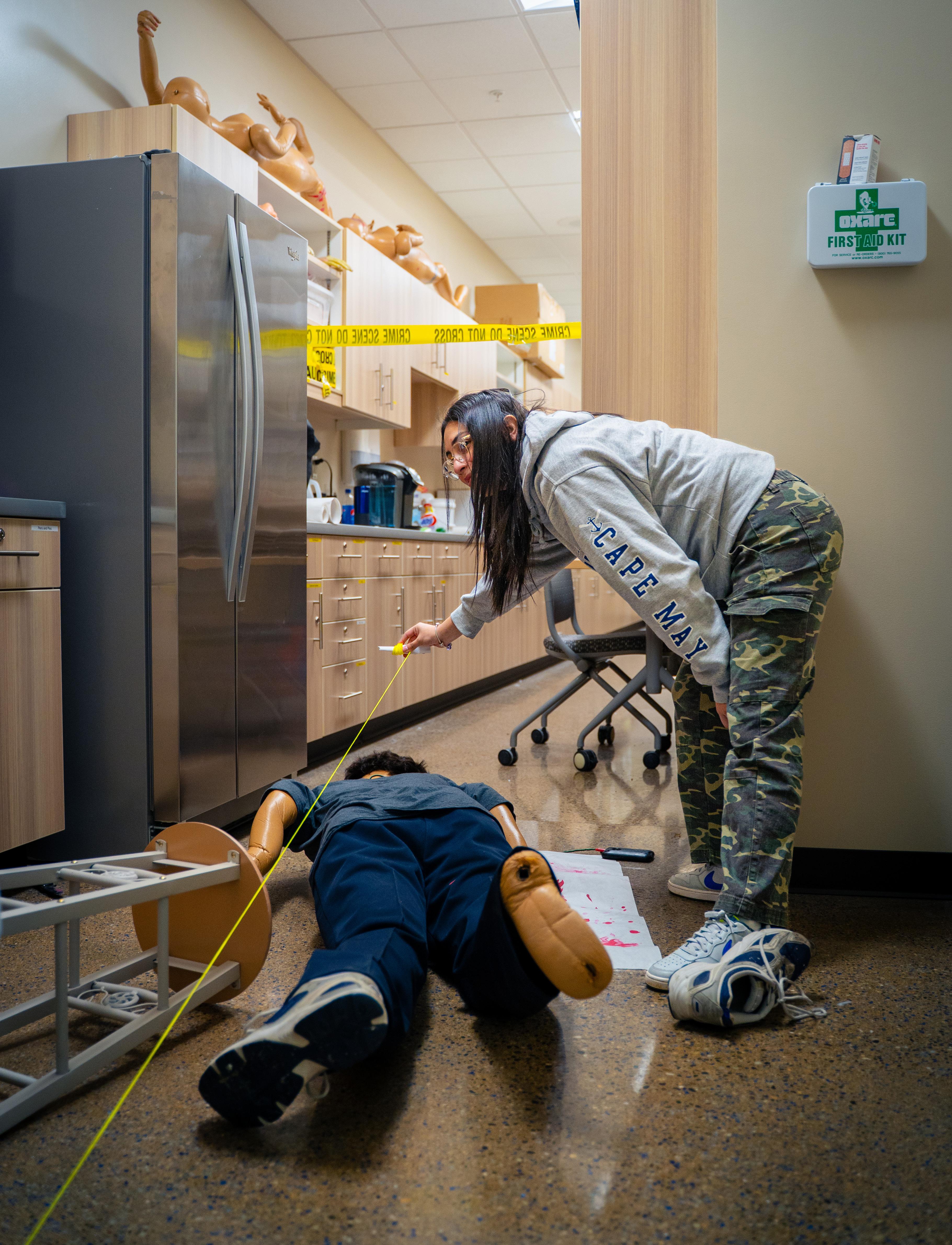
The programs offered by the School of Social & Behavioral Sciences empower students to take flight in rewarding careers by teaching them to work with people, understand human behavior and help others.
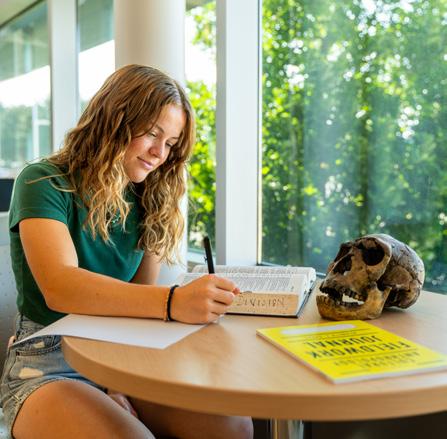
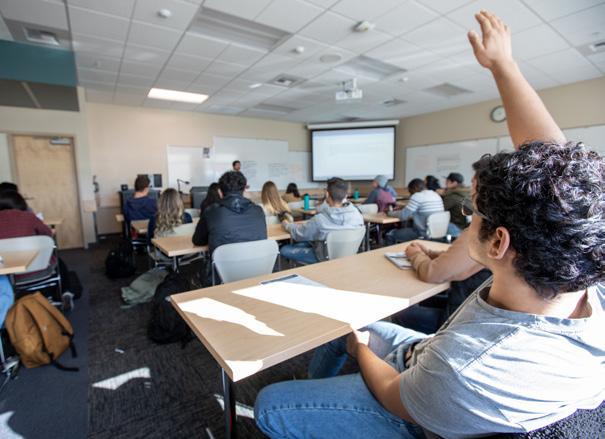
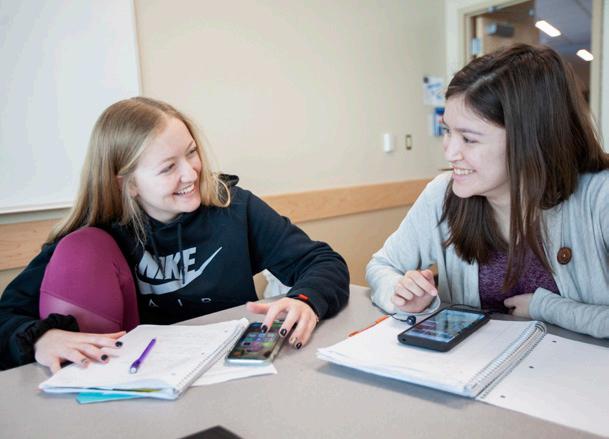
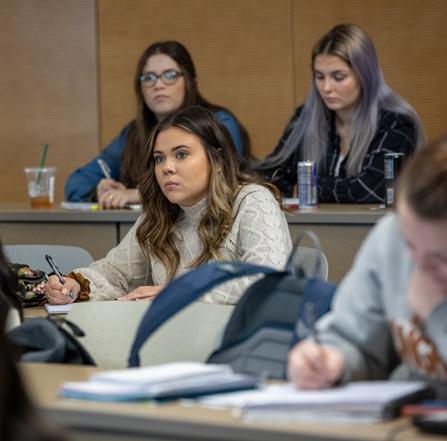
CBC FOUNDATION
BOARD OF DIRECTORS
Melda Velasquez, Chair
Kadlec Regional Medical Center
Kyle Simmons, Vice Chair & Fund
Development Chair
CG Public House
Jaime Shimek, Treasurer & Finance Chair
Pacific Northwest National Laboratory
CBC NEWS
CBC News
CRIMINAL JUSTICE PROGRAM Bridging the Gap Between Education & Fieldwork
Whitney LaMarche, Secretary
Hadron Intrinsic Consulting, LLC
Douglas Christensen, Board Development Chair HMIS
Rebekah Dobbs, Gift, Estate and Planned Giving Chair
Premier Mortgage Resources
Lynn Tegeler, Scholarship Chair Central Plateau Cleanup Company
Rebekah Woods
Columbia Basin College President
Matt Backlund Community First Bank
David Billetdeaux Pacific Northwest National Laboratory
Andrew Chung Gesa Credit Union
Maggie Esquivel Gravis Law
Marsha Halverson Educator, Retired
Ann Harper Artist
Kedrich Jackson
Columbia Basin College Trustee
Jack Janezic
Trios & Lourdes Health
Moses Jaraysi
Leanna Nighswonger Washington River Protection Solutions
Shawn Nyman
CBC Faculty Representative
Mitch Peterson CompuNet
Edgardo Quiroz-Moreno Coldwell Banker Tomlinson
Adan Tijerina
Columbia Basin College Educator, Retired
Michelle Twomey Kadlec Regional Medical Center
Tayler Welch
Monte Nail, CPA
Paige Wyatt
Pacific Northwest National Laboratory
STAFF
Erin Fishburn Executive Director
Devon Holze
Sarah Murphy
Timmy Song
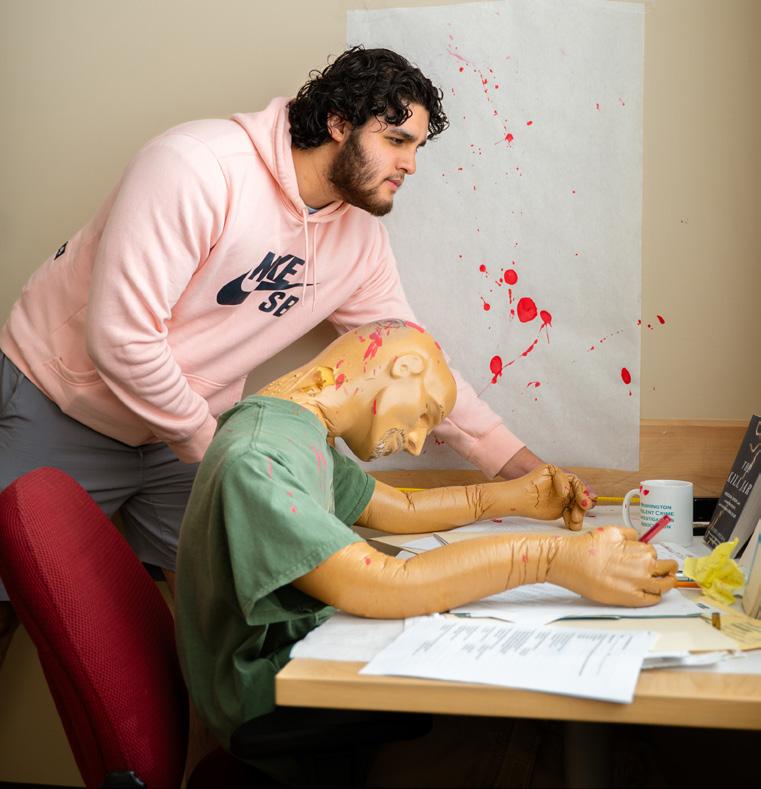
From cops, courts and corrections to fields like social work and psychology, CBC’s Criminal Justice program goes beyond textbooks by extending theory to practice.
The program’s real-world approach equips students with the confidence and competence needed to succeed in a wide range of criminal justice-related fields.
“For final projects in our forensic courses, we recreate actual crime scenes,” said Tim Harris, Associate Professor of Criminal Justice at CBC. “Our Criminal Justice and Psychology students step into the roles of forensic investigators and psychologists, applying the theories and techniques they’ve learned in the classroom to these simulated scenarios.”
To make the experience even more authentic, CBC’s Theater program students act as witnesses and suspects.
As part of the crime scene simulation, students measure and diagram the room, develop and lift fingerprints, examine blood spatter patterns, conduct interviews and interrogations, and profile a suspect based on the evidence.
In addition to Introduction to Forensic Science, students complete coursework in criminal law, juvenile justice, criminal evidence and other subjects over two years, culminating in an Associate of Applied Science (AAS) degree in Criminal Justice.
Adrian, a recent graduate and local corrections officer, earned the AAS degree and now plans to apply to become a police officer.
“CBC’s Criminal Justice program is such a great opportunity, especially because of Professor Harris,” he said. “When it comes to learning and retaining information, his knowledge and experience make the difference. It’s like reading a book versus watching a movie.”
Undergraduate research opportunities are rare at community colleges, but that is changing at CBC.
Thanks to a $200,000 grant from the National Science Foundation, CBC launched a three-year initiative to bring research into the classroom. The Course-Based Undergraduate Research Experiences (CURE) grant will enable faculty to design hands-on research experiences across multiple disciplines.
“Many students assume only professors and academics perform research,” said Dr. Adam Austin, Professor of Psychology at CBC. “Our goal is to shift that mindset, helping students see themselves as researchers, scientists and scholars, opening up new academic and career possibilities.”
Starting this fall, three courses will integrate student research: Fundamentals of Psychological Research, Psychological Disorders and Asian American Studies.
Engaging in research builds critical thinking, problem-solving skills and a deeper understanding of the scientific method.
“Research teaches resilience,” Adam added. “Students need to know failure is part of the process and a powerful learning tool.”
As part of the grant, students will present their research at regional and national conferences, competing alongside peers from other colleges and universities.
Immersive History Education
REACTING TO THE PAST
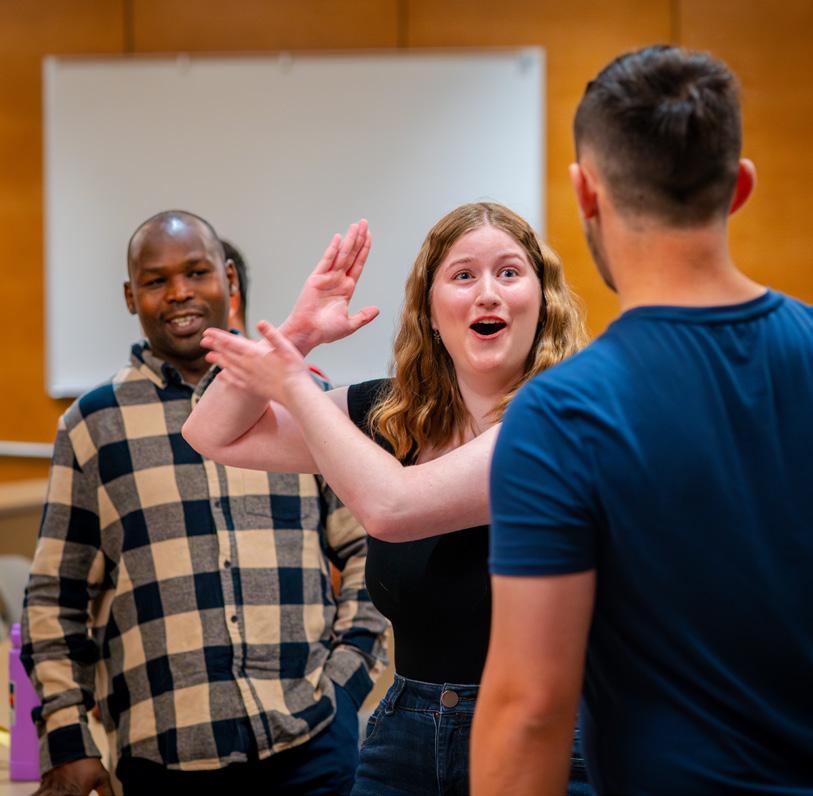
Students in CBC’s American History class wrapped up the spring quarter in Kentucky on the eve of the Civil War – well, sort of.
Dr. Chris Herbert, a Professor of History at CBC, has incorporated an immersive roleplaying approach called Reacting to the Past, replacing the traditional lecture format in two of his classes.
“It’s a fantastic format,” said Chris. “It requires students to actively engage and participate in class as they play a character at a crucial turning point in history.”
The purpose is for students to experience history from the perspective of their assigned characters. The method adds a game-like element, where students earn bonus points by achieving individual and faction goals. While initially hesitant, students quickly become deeply involved and invested in the historical context of their roles.
CBC student Megan played the character of Kentucky Governor Beriah Magoffin in 1861.
“This approach piques your curiosity to dig deeper,” she said. “As you read documents, newspapers and speeches from that time, you have to think critically about what was happening through your character’s viewpoint and get into the mindset of your role.”
Class members discuss, debate, heckle, vote and sometimes ‘eliminate’ other characters to accomplish objectives. They also reflect on the outcomes that unfolded during role-playing and the actual historical events.
Through this process, students gain a greater understanding of multiple perspectives while developing valuable skills such as critical thinking, reasoning, document analysis, debating and public speaking.
“This learning method is one example of how we’re innovating classes,” Chris shared. “We’re helping students connect to learning and each other in unique, meaningful ways.”
FAST FACTS ABOUT THE SCHOOL OF SOCIAL & BEHAVIORAL SCIENCES
5,000 Students Served Annually
• Anthropology
• Criminal Justice
• Geography
• History
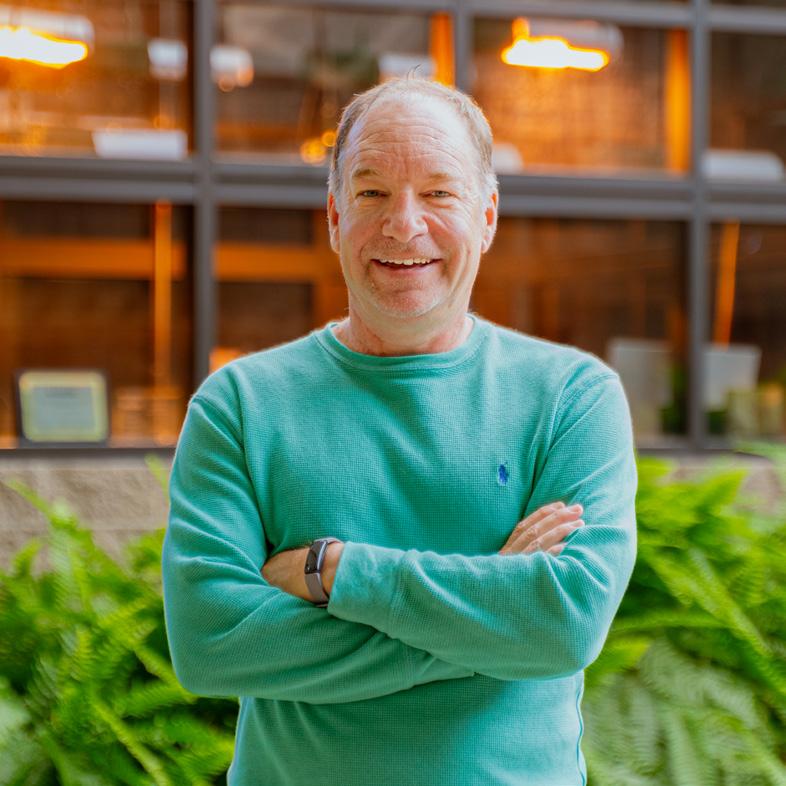
1,000 Class Offerings
PROGRAMS INCLUDE:
• Intercultural Studies
• Political Science
• Psychology
• Social Work
52 Faculty Members
• Sociology
• Women’s Studies
Why I Give!
“CBC is a cornerstone of our community and a tremendous resource for developing trade skills, earning degrees and encouraging lifelong learning. When we all chip in a little bit to help students succeed, our entire community benefits.”
SHAWN NYMAN
CBC Foundation Board Faculty Representative & Senior Associate Professor of Sociology
FOUNDATION
WAYS TO GIVE
❱ Donate Monthly
❱ Donate a Scholarship to a Specific Degree Area or Program
❱ Create a Scholarship or Program Endowment as a Lasting Legacy
❱ Donate a Tribute Gift in Honor or Memory of a Loved One
❱ Become an Event Sponsor or Attend an Event
❱ Donate Stock, Real Estate or an IRA Rollover
❱ Give Through a Donor Advised Fund (DAF)
❱ Ask Your Employer to Match Your Gift
❱ Make a Planned Gift or Bequest
Ink & Insight POETRY AS A LEADERSHIP TOOL
In CBC’s Intercultural Leadership course, students refine their leadership potential by reflecting on their life stories through the art of poetry. Using thought-provoking workbook prompts, students write about their lives, revealing insights into their unique experiences.
“Poetry shapes the leaders within us by uncovering the strength in our personal stories,” said Dr. Eudelio Martinez, Jr., CBC Assistant Professor of Intercultural Studies.
This process of creation – writing, sharing and listening to the poems of classmates from diverse backgrounds – helps students develop self-awareness, compassion and communication skills. The process also fosters an appreciation for the various cultures represented in the class.
“Each student’s journey is inspiring,” said Eudelio. “It shapes how they connect with others and enhances their ability to lead with empathy.”
The course culminates with students reciting their poetry in front of an audience, sharing their creations and connecting with others on a profound level.
LEARN MORE COLUMBIABASIN.EDU/INTERCULTURALSTUDIES
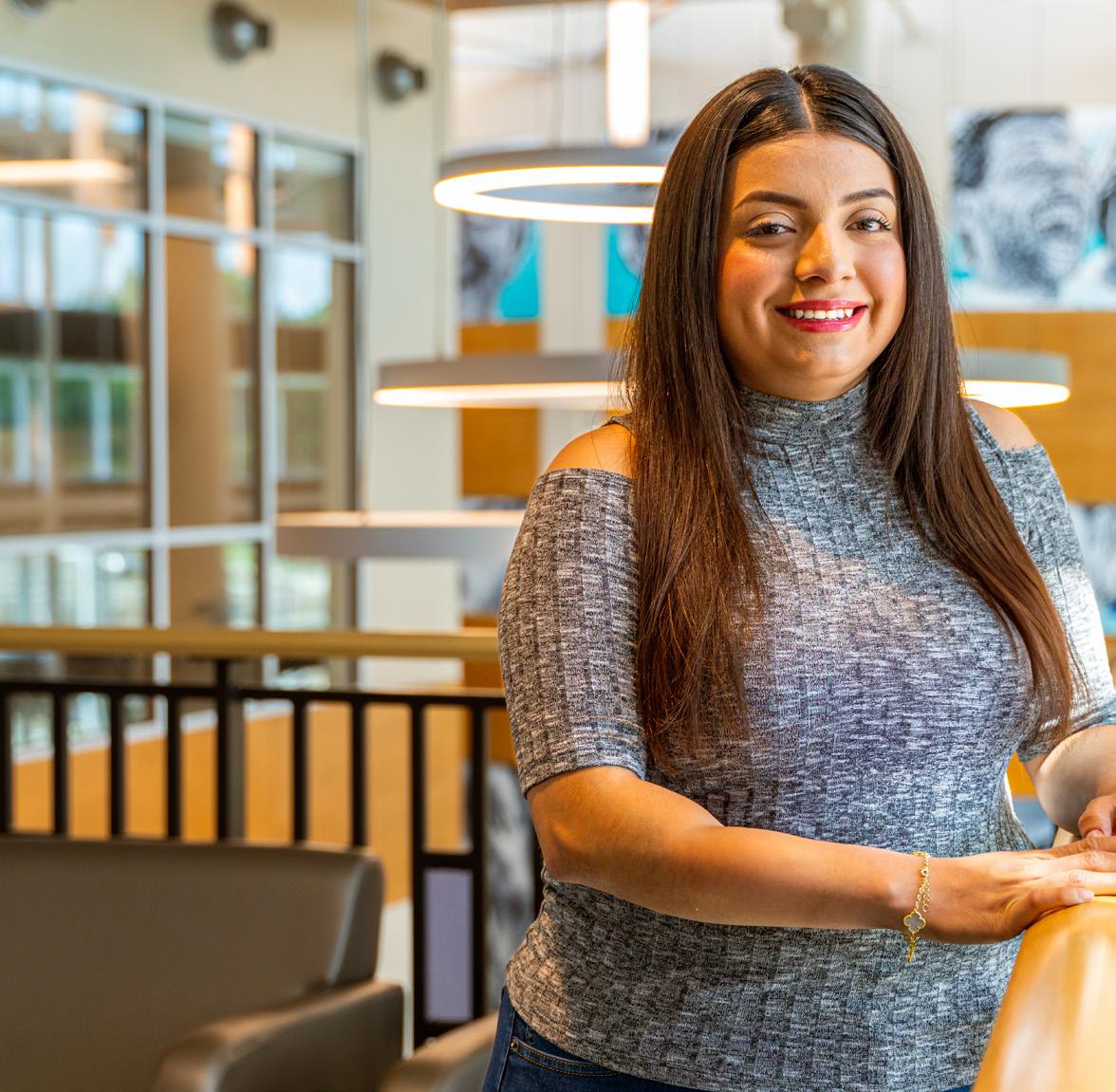
“I know firsthand the struggles that come with financial hardship, lack of resources and limited access to essential services. Those experiences instilled in me a deep commitment to complete my education so I can make a difference for others.”
KATYE - SOCIAL SCIENCES Scholarship Recipient
